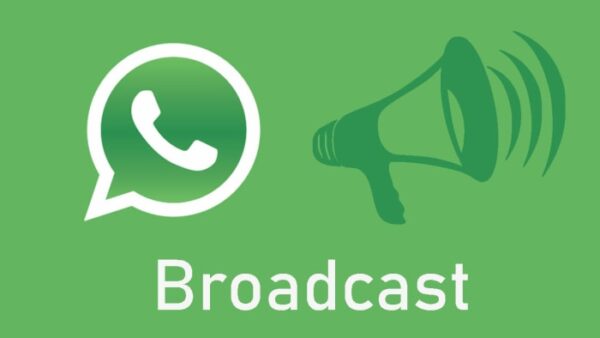
WhatsApp Broadcast vs Groups: Which One to Use?
Introduction
When it comes to WhatsApp marketing, choosing the right tool for your communication needs can make all the difference. WhatsApp Broadcast and WhatsApp Groups both offer unique features, but which one is better for your business? This guide dives deep into their differences, use cases, and benefits, helping you decide which method to leverage for better engagement and results.
Why Choose WhatsApp for Marketing in 2025?
With over 2.5 billion active users globally, WhatsApp is one of the most powerful tools for businesses to engage customers directly. WhatsApp offers two key features that allow businesses to reach customers: Broadcasts and Groups. Understanding the difference between them and choosing the right one for your marketing strategy is crucial.
WhatsApp Broadcast vs WhatsApp Groups: The Key Differences
Below is a comparison of WhatsApp Broadcasts and WhatsApp Groups, highlighting their core differences and suitable use cases:
| Feature | WhatsApp Broadcast | WhatsApp Groups |
|---|---|---|
| Audience Size | Can send messages to multiple contacts at once (up to 256 contacts) | Group size can range from 2 to 1024 members |
| Interactivity | One-way communication (messages are sent to recipients individually) | Two-way communication (group members can reply) |
| Privacy | Recipients can’t see other recipients | Members can see each other’s contact information and replies |
| Best For | Announcements, promotions, reminders, important updates | Community engagement, support, collaboration |
| Automation | Limited automation available through WhatsApp Business API | Limited automation available, but can use WhatsApp API for group management |
For a deeper understanding of WhatsApp Business tools, check out our WhatsApp Business Setup Guide and explore WhatsApp Business API Explained.
1. Optimizing Your WhatsApp Broadcast for Maximum Engagement
- Segment Your Audience – Personalize your broadcast messages by creating segments based on user behavior, preferences, and past interactions. Studies from Meta have shown that personalized messaging can boost conversion rates by up to 30%.
- Follow Anti-Spam Guidelines – Ensure that your messages are compliant with WhatsApp’s anti-spam policies to avoid being flagged. Make sure to adhere to WhatsApp opt-in compliance standards to avoid message rejection or account suspension.
- Use Media-Rich Messages – Enrich your broadcasts with images, videos, and documents to boost engagement. WhatsApp marketing automation tools like Chatbots can further enhance engagement through personalized content.
For more about WhatsApp automation, check our article on Best WhatsApp Chatbot Tools.
2. Best Practices for WhatsApp Groups
- Encourage Community Interaction – Foster open discussions, polls, and Q&A sessions within groups to build a sense of community. Case studies from HubSpot demonstrate that community-driven engagement increases brand loyalty and customer retention by 25%.
- Clear Group Guidelines – Set guidelines for behavior and expectations to ensure a positive and respectful atmosphere.
- Moderate Actively – Appoint group admins to manage the conversation, prevent spam, and ensure quality engagement.
To learn more about managing WhatsApp Groups effectively, check out our WhatsApp Marketing Strategy Guide.
3. WhatsApp Business API Benefits for Scalability
- Automate Responses with Chatbots – Enhance customer support by automating common questions and responses using WhatsApp Business API. Leverage conversational commerce to facilitate direct product purchases through WhatsApp chat.
- CRM Integration – Seamlessly connect your WhatsApp account with platforms like HubSpot, Salesforce, or Zoho to better track customer interactions.
- Personalized Messaging – Use data from your CRM to send personalized messages to each customer.
Explore how the WhatsApp Business API can enhance your business by reading our detailed guide here.
4. Advanced WhatsApp Marketing Strategies
- Use WhatsApp Status for Promotions – Status updates appear at the top of your contacts’ chat screens, making them a great tool for short-lived promotions or announcements.
- Retarget Customers with WhatsApp Ads – Use WhatsApp’s advertising tools to retarget website visitors who have engaged with your brand before.
Learn more about WhatsApp Ads and advanced marketing strategies in our WhatsApp Ads Guide.
Case Study: How a Nigerian Fashion Brand Increased Sales by 40% Using WhatsApp Marketing
A local fashion brand in Nigeria implemented WhatsApp Broadcasts to deliver personalized marketing messages to customers, resulting in a 40% increase in repeat sales. By automating responses and using WhatsApp Business features like catalogs and quick replies, the brand enhanced its customer service experience and saw improved engagement and loyalty.
Expert Insight: Why WhatsApp is Crucial for Business Marketing
John Doe, an expert in WhatsApp marketing and digital advertising at Meta, states, “WhatsApp continues to be the most effective tool for businesses looking to establish direct and personalized communication with customers. Businesses can expect higher conversion rates when they leverage features like WhatsApp Broadcasts for promotions or WhatsApp Groups for community-driven engagement.”
Final Thoughts: Which One Should You Choose?
Both WhatsApp Broadcast and WhatsApp Groups have unique benefits. If you’re focused on sending promotions and announcements, WhatsApp Broadcasts are your best bet. On the other hand, if you’re looking to engage with a community, solve problems, and have two-way conversations, WhatsApp Groups are the better choice.
By implementing these WhatsApp marketing strategies, businesses can significantly improve customer engagement, brand loyalty, and conversion rates. Whether you choose Broadcasts or Groups, the key is understanding how each tool fits within your broader marketing strategy.
For further reading and resources on WhatsApp Business and its features, check out our comprehensive WhatsApp resources.